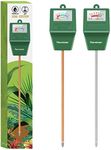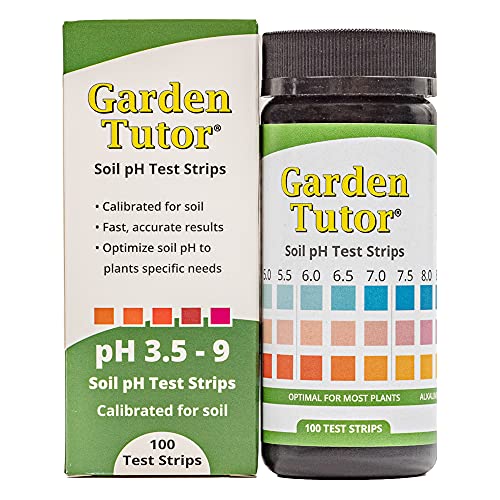Buying Guide for the Best Soil Test Kit
Choosing the right soil test kit is essential for understanding the health and composition of your soil, which in turn helps you make informed decisions about gardening, farming, or landscaping. A good soil test kit will provide you with accurate information about the nutrient levels, pH, and other important factors in your soil. Here are some key specifications to consider when selecting a soil test kit and how to choose the best one for your needs.Type of TestSoil test kits come in different types, including chemical test kits, digital meters, and laboratory analysis kits. Chemical test kits use color-changing chemicals to indicate nutrient levels and pH, and are generally easy to use and affordable. Digital meters provide quick and precise readings for pH, moisture, and sometimes nutrient levels, but can be more expensive. Laboratory analysis kits involve sending a soil sample to a lab for detailed analysis, offering the most comprehensive results but requiring more time and effort. Choose the type based on your need for accuracy, convenience, and the specific information you require.
Nutrient TestingNutrient testing is crucial for determining the levels of essential nutrients like nitrogen (N), phosphorus (P), and potassium (K) in your soil. These nutrients are vital for plant growth and health. Kits vary in the number of nutrients they test for; some may only test for the basic N-P-K, while others include secondary nutrients like calcium, magnesium, and sulfur. If you are a home gardener, a basic N-P-K test may suffice. However, for more detailed soil management, especially in farming, a kit that tests for a broader range of nutrients is recommended.
pH TestingSoil pH measures the acidity or alkalinity of your soil, which affects nutrient availability and microbial activity. Most plants prefer a pH range of 6.0 to 7.0, but some plants have specific pH requirements. Soil test kits typically include pH testing capabilities. Chemical kits use a color chart to indicate pH levels, while digital meters provide a numerical reading. If you are growing plants with specific pH needs, a digital meter might be more useful for precise adjustments. For general gardening, a chemical kit should be adequate.
Ease of UseThe ease of use of a soil test kit can significantly impact your experience and the accuracy of your results. Chemical test kits often involve mixing soil with reagents and comparing colors, which can be straightforward but requires careful handling. Digital meters are usually simple to use, requiring you to insert the probe into the soil and read the display. Laboratory kits involve collecting and mailing a soil sample, which is more time-consuming. Consider your comfort level with these processes and choose a kit that matches your preference for simplicity or detail.
AccuracyAccuracy is a critical factor in soil testing, as it directly affects the reliability of the information you receive. Chemical test kits can provide reasonably accurate results if used correctly, but they are subject to user error. Digital meters offer higher accuracy and consistency, especially for pH and moisture levels. Laboratory analysis provides the most accurate and comprehensive results, as they use professional-grade equipment and methods. If precise data is crucial for your gardening or farming decisions, investing in a more accurate testing method is advisable.
Additional FeaturesSome soil test kits come with additional features that can enhance their usefulness. These may include moisture meters, light meters, or temperature sensors. Moisture meters help you monitor soil water content, which is important for irrigation management. Light meters measure the amount of light reaching your plants, which can be useful for optimizing growth conditions. Temperature sensors can help you understand soil temperature, which affects seed germination and root development. Consider these additional features if they align with your specific gardening or farming needs.






















